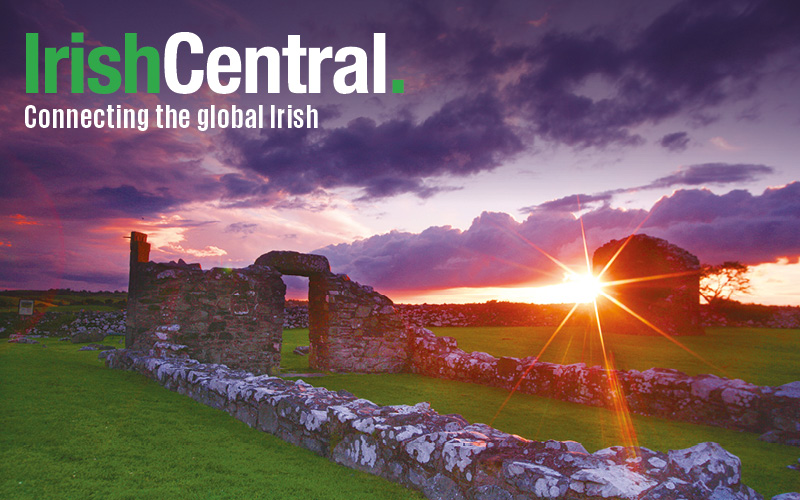Media reports of an agreed deal on the fate of the storied Central Park horse and carriage industry are premature, an industry spokesperson says, and negotiations are ongoing to secure a minimum amount of job losses and an absolute guarantee on a new stable for the horses in Central Park.
“We are working towards a deal but we are not there yet. As of now a framework exists, but nothing is close,” Stephen Malone, spokesperson for the Horse and Carriage Association and a carriage owner/driver himself, told the Irish Voice.
On Sunday, news emerged that a deal was done that would see the number of licensed horses drop from 180 to 110 by the end of this year, with all horses and carriages confined solely to the interior of Central Park as of June 1 – except from traveling to and from their current stables on the West Side. The number of licensed horses would drop to only 95 when the proposed stable inside Central Park at the 85th Street Transverse becomes operational by October 1, 2018. The renovation, estimated to cost in the region of $25 million, would be publicly funded.
However, the construction of a horse stable for private use inside a public park will certainly invite lawsuits, Malone says, which would make for an uncertain future for the horse and carriage industry. Park advocates have already expressed outrage in several media outlets over the proposal.
“We’re very concerned about the implementation,” Malone says. “We can’t move until there’s a stable to go to.”
The number of job losses due to the reduction in licensed horse numbers is also a cause for huge concern, Malone adds, as is the drop in income that’s predicted for those that remain due to increased restrictions.
“We are still negotiating on that. There’s no definite bill yet so we are looking to keep as many jobs as possible, and to preserve the long-term future of our industry,” Malone said.
On Monday morning, while media reports proclaiming a done deal continued to persist – New York City Mayor Bill de Blasio, who vowed to eliminate the horse and carriage industry on day one of his mayoralty, said that he was “very pleased” about the deal – the official Famous Horse Drawn Carriages of Central Park Facebook page posted the following: “As most of you know by now, there have been multiple media announcements regarding the status of the industry as we struggle on in the crosshairs of this administration's aggressive legislative attack.
“WE WANT OUR SUPPORTERS TO KNOW THAT THE RANK AND FILE OWNERS AND DRIVERS IN THIS BUSINESS HAVE **NOT** SIGNED ON TO OR APPROVED ANY "DEAL", NO MATTER WHAT HAS BEEN REPORTED.
“Please stay tuned to this page, we are going to need each of you as a rock in the avalanche of pushback when the facts reveal themselves.”
The Teamsters Local 553 union representing the horse and carriage drivers has been negotiating with City Hall and the City Council, which must vote to approve a final deal. The Teamsters have consistently fought de Blasio’s long-stated goal to completely ban the horse and carriage industry and replace it with electric vintage cars.
“The way we see things,” Malone said, “is that we’re in a better position than we were in two years ago when the mayor wanted to ban us altogether.”
De Blasio’s mayoral campaign in 2013 received significant financial support from the multi-millionaire founders of the animal rights group NYCLASS, which has persisted in demanding a ban from City Hall even though a majority of City Council members would not give support. NYCLASS has yet to publicly comment on the new proposals, and de Blasio conceded on Monday that a total horse ban proved to be impossible given the political realities. Numerous polls have also shown that New Yorkers broadly support the horse and carriage industry, and did not want it eliminated.
Conor McHugh, a carriage driver from Co. Leitrim for nearly 30 years and a co-owner/manager of the Clinton Park Stables on West 51st Street, told the Irish Voice on Monday that he’s not opposed to a move to Central Park, “but I’m concerned how this will come to fruition,” he said.
“There are things that still have to be worked out. I don’t know that everyone will ever totally agree, but I think the potential for hiccups is there and we have to watch out for that.”
McHugh feels the industry status quo should be completely maintained until the Central Park stable becomes a reality, “this way we know for sure,” he said.
The horse and carriage industry, heavily Irish in tradition, has been put under severe stress since de Blasio’s election, McHugh said. He is also one of many who believe that NYCLASS is primarily motivated by a desire to obtain the valuable real estate owned by Clinton Park and the three other stables on the West Side.
“It’s been years of uncertainty for us,” McHugh said. “It’s almost like we’ve had to put our lives hold while we watch how things play out.”
Pedicab drivers currently working the Central Park circuit are also angered by the proposed deal which would ban them from operating below 85th Street.
“It’s like orange farmers saying, ‘We’re going to ban tangerines now,’ ” Gregg Zuman, a founder of the New York City Pedicab Owners Association, told The New York Times. “It’s unbelievable that you would forcibly eliminate your competition.”
A City Council hearing on the proposals could take place as early as the end of this week, with a full vote soon to follow.




Comments